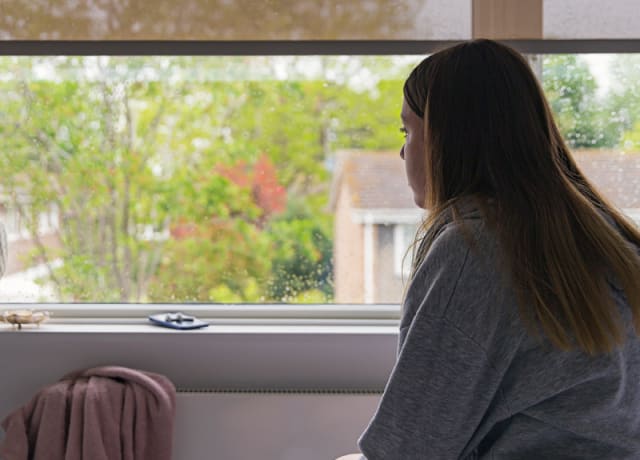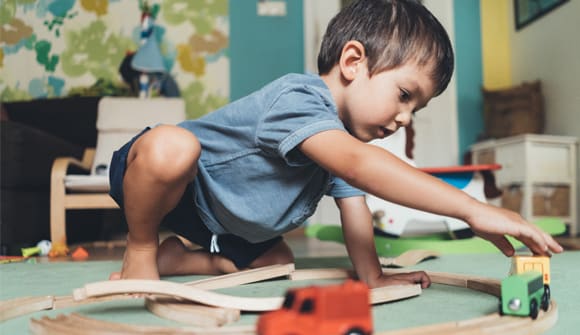Behaving like a bully
No parent wants to hear their child is hurting others. Here’s what to do.
Article Date:

Oh no, the principal is calling. You get a sinking feeling in your gut wondering what has happened and whether your child is OK. For some parents, this conversation can take an unexpected turn when the administrator on the other end tells them their child is in trouble for bullying.
Most parents worry about their child being the victim, which is a startlingly common occurrence. Unfortunately, that means there are also kids behaving like bullies, and parents who have to figure out how to handle it.
Aggressive actions
Everyone hopes to raise a kind child and expects their kid to be respectful of others at school. So, how can you know they’re acting out if you’re not there to see it?
“Some red flags that your child may be prone to, or is already engaging in bullying behavior, include certain styles of interacting with others, personality characteristics, and their past experiences,” said Francesca Varallo Sims, PsyD, director of education and training for Baptist Behavioral Health and Wolfson Children’s Behavioral Health.
Warning signs may include:
- Acting verbally or physically aggressive toward adults and authority figures
- Being quick-to-anger or having emotional outbursts that include threats of harm to themselves or others
- Disregarding rules and social norms
- Receiving frequent disciplinary action at school
- Being manipulative or controlling at home, in peer relationships or in competitive environments
- Engaging in risk-taking or impulsive behaviors, like stealing, vandalism or substance use
- Showing a lack of concern or empathy for people, especially those who are vulnerable
- Having a history of abuse or being the victim of bullying behavior
Time to talk
Parents hoping to bring their child’s bullying behavior to an end should start by staying calm and addressing the situation together. Dr. Varallo Sims said keeping your cool will reinforce to your child that you can handle intense situations without anger or violence.
“Ask about your child’s perspective on what happened to give them a platform to share what lead to this behavior and why they felt motivated to bully or be aggressive,” she said. “Brainstorm other nonviolent ways your child could respond to similar events. Encourage them to consider the victim’s point of view by using perspective-taking, where they envision receiving the bullying behavior themselves. That may help them consider how it would feel if the roles were reversed, to hopefully develop a sense of empathy.”
If your child is repeating behaviors they’ve seen at home, it may be time to take a hard look in the mirror and right those wrongs, too.
“Consider the potential sources of violence and aggression they may be exposed to in the home, like violent TV shows or graphic social media content, and eliminate them when appropriate,” said Dr. Varallo Sims.
It’s important for parents to stay in touch with their child’s school and other support services to make sure everyone involved stays safe and healthy moving forward.
“Have ongoing communication with teachers, administrators and resource officers at school to stay informed about your child’s behavior. With the support of school staff and the victim’s parents, encourage your child to make amends with the target of bullying. Seek the guidance of school counselors or mental health professionals in the community for ongoing treatment if there is persistent antisocial behavior,” Dr. Varallo Sims said.
Compassionate conversation starters
Maybe your child has never been a victim or bullied others. Or perhaps they’ve been in one position, or both. In any case, having conversations with your child about what healthy, happy relationships look like can help them spot bullies sooner and become more self-aware of their own behavior toward others.
Dr. Varallo Sims recommended trying these conversation starters:
- What makes a good friend?
- If someone says something you don’t agree with or makes you feel bad, what do you do?
- If you have ever seen someone being bullied, how did it make you feel?
- How can you be a good friend, especially to others who might be bullied?
- If you were ever being bullied, what would you do?
Do you think your child may be bullying others? Common Thread by Wolfson Children’s has tools to support children’s mental health and help kids and teens navigate challenges with confidence and care. To learn more, visit wolfsonchildrens.com/commonthread.



